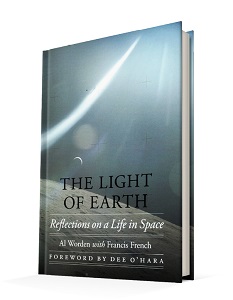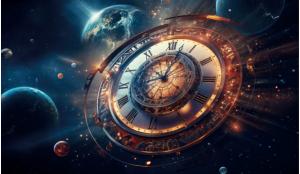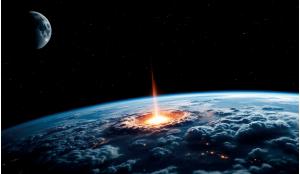Al Worden was one of the NASA astronaut corps ‘Original 19’ and served as command module pilot for Apollo 15 in 1971. According to the blurb for this book, Worden had almost finished writing it before he died in 2020 and it fell to spaceflight historian Francis French to complete it.
The book presents Worden’s “refreshingly candid” opinions on the Apollo lunar programme and the people involved, as well as “hard-hitting reflections” on the US Space Shuttle programme. This includes a sharing of views on the human and sometimes tragic side of spaceflight, notably his personal feelings about fellow astronauts, including Neil Armstrong and Buzz Aldrin, and the “shocking deaths” of his comrades in NASA’s three major tragedies.
The book fulfils the “candid” promise early on in chapter one as part of a diatribe on the public duties of an ex-astronaut (although Worden purports that there is “no such thing as an ex-astronaut”).
While he admits to not being “a fan of Hilary Clinton politically”, he appreciates her ability to ask a pertinent question and listen attentively to the answer; by contrast, he rails against Bill Clinton, who asks a “nothing question” and fails to look him in the eye as he responds. Worden thinks: “Well, you prick. You don’t need an answer... You don’t care.”
This sets the tone for the book, which covers the Apollo astronauts in some depth in chapters four and five: “The Twelve” and “The Other Twelve”. And you always know what he thinks: Jim Lovell (“I like Jim a lot”); Dick Gordon (“my best friend”); Jack Swigert (“Jack was a screwball”); and Jim Irwin (“never said a lot”).
So, what about Neil and Buzz? He describes Armstrong as “the greatest gentleman I’ve ever met”, but assesses the reason that Neil was friendly toward him as “because I never bugged him”.
Addressing the common image of the first man on the Moon, he opines that he was “more self-contained than aloof”. As for Aldrin: “To be honest, I think Buzz is a sad character”, he opines. Although he supports his bravery in talking about depression, he criticises Buzz’s “relentless advocacy” for getting humans to Mars and expresses an “intense dislike” of his self-promotion and misuse of the Apollo legacy. One is certainly left in no doubt about what Al thinks!
The book concludes with “Thoughts after a Moon Voyage”, Worden’s views on the point of the space programme and a “Poem from the Far Side of the Moon” (from which the book’s title - The Light of Earth - is derived). There is also an index and a centre section containing 13 monochrome photos.
This reviewer has often opined that all astronauts, especially the early pioneers, deserve an autobiography and never has this been more true than for Al Worden. So much of what we read today is sanitised and politically correct that it’s a breath of fresh air to have someone ‘tell it like it is’ in his view – and that’s the point really. You don’t have to believe or agree with everything you read here, and it may tarnish some otherwise rosy images, but a man who has travelled to the Moon deserves to be listened to.











